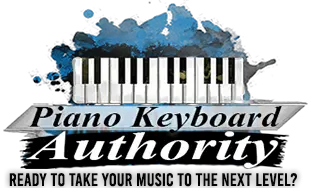Starting your piano journey can be a thrilling and enriching experience, but with so many different techniques, skills, and styles to learn, it can also be overwhelming. If you’re new to playing the piano and don’t know where to begin, don’t worry! This detailed guide will help you get on track and learn the essential skills you need to master the fundamentals.
Before we dive into what you should focus on first, let’s talk about the benefits of playing the piano. As we discussed in our previous article, “Does Playing Piano Improve Memory?” playing a musical instrument has been shown to have a positive impact on the brain and memory. Regular practicing of the piano can enhance skills like memory recall, hand-eye coordination, and executive function. Furthermore, playing the piano can also be a great way to relieve stress and improve your overall mood. So, not only are you doing something fun and creative, but you’re also potentially boosting your cognitive abilities and overall well-being!
Now that you know why learning the piano is so valuable, let’s go over the key skills you need to master to get started:
Table of Contents
Keyboard Layout:
- Understanding the layout of the keyboard and the corresponding notes is the first step in learning the piano. Knowing where each key is located will allow you to play any song you like and understand sheet music. Familiarizing yourself with the keyboard layout will also make it easier for you to learn the notes, as you’ll have a visual representation of where each note is located.
Hand Position:
- Good hand position is crucial for proper technique and avoiding injury. Make sure your hands are relaxed and in the correct position on the keys to ensure you’re playing with the best possible form. Your hand position will have a significant impact on how your fingers hit the keys and how easily you can play different types of music.
Scales and Chords:
- Scales and chords are the foundation of all music. By learning these basic musical concepts, you’ll be able to play simple songs and start to understand how music is constructed. Scales and chords will give you a solid foundation to build upon as you continue to develop your skills.
Reading Sheet Music:
- Knowing how to read sheet music is a critical skill for pianists. It will give you the ability to play any song you want and take your playing to the next level. Sheet music provides a written representation of the music, including the melody, rhythm, and harmony. By learning how to read sheet music, you’ll have access to a vast library of musical compositions and be able to play any piece you like.
Timing and Rhythm:
Timing and rhythm are essential for playing music that sounds good. Make sure you practice playing with a metronome and focus on playing in time. This skill takes time and practice to develop, but it will make a huge difference in how your playing sounds.
Theory and History:
- Understanding the theory and history of music can greatly enhance your playing. Knowing the basics of music theory will give you a deeper understanding of how music works and how you can use different techniques to create specific sounds and styles. Additionally, learning about the history of music can give you a greater appreciation for the different styles and genres you encounter.
Practice, Practice, Practice!:
- The key to becoming a skilled pianist is practice. Make sure you set aside time each day to practice what you’ve learned and continue to build your skills. Consistent practice will help you retain what you’ve learned and make steady progress.
In conclusion, learning the piano is a thrilling journey that can have a positive impact on your brain, memory, and overall well-being. By focusing on the essential skills discussed in this guide, you’ll be well on your way to becoming a skilled pianist. Remember to take your time, be patient with yourself, and have fun! The more you enjoy the process, the more motivated you’ll be to continue learning and growing as a musician.
Don’t forget to revisit our previous article, “Does Playing Piano Improve Memory?” to gain more insights on the cognitive benefits of playing the piano. Whether you’re a beginner or a seasoned player, there’s always more to learn and discover about the wonderful world of music. So, what are you waiting for? Start your piano journey today and let the music take you to new heights!


